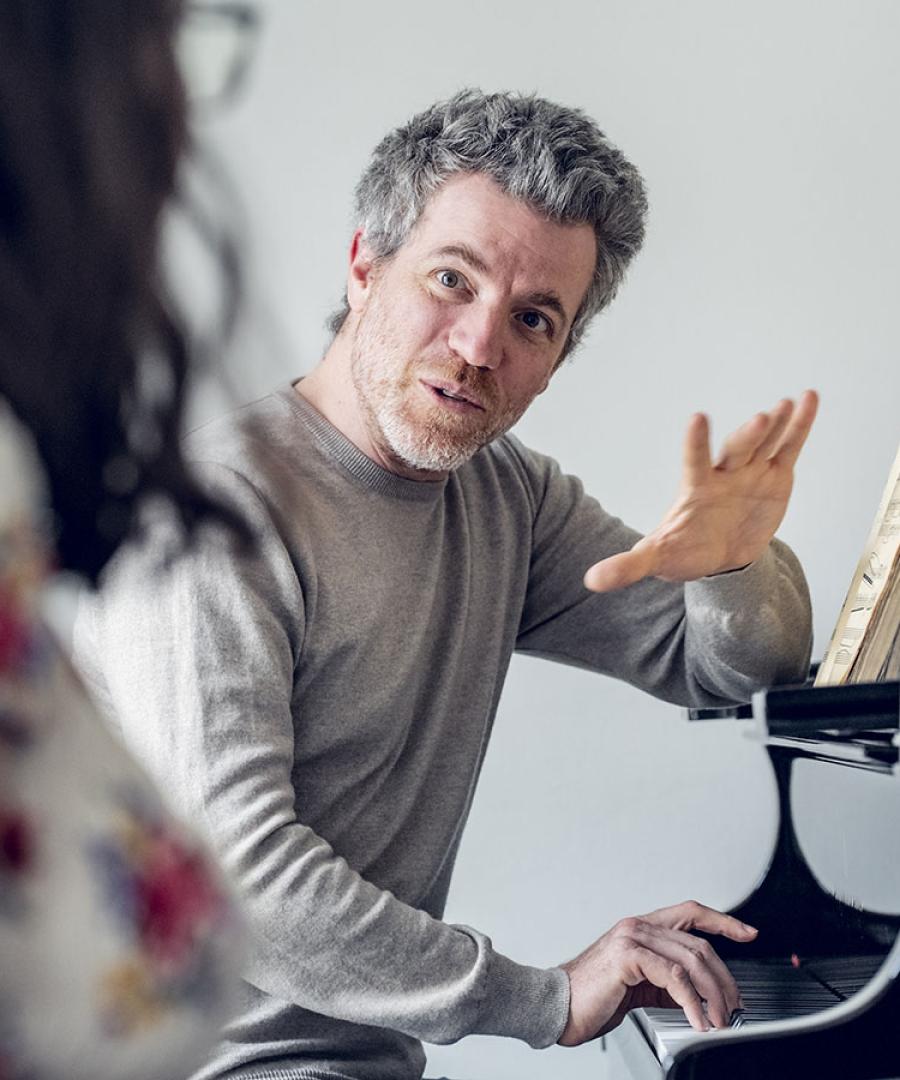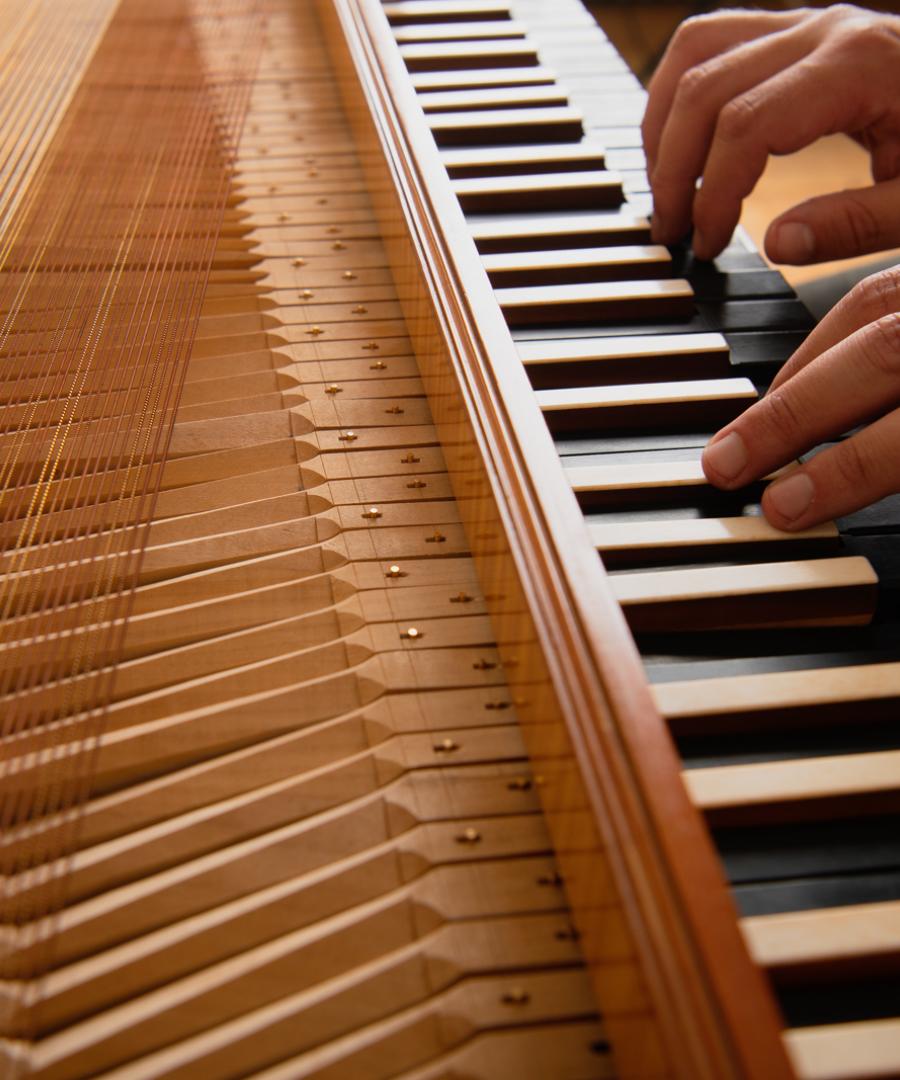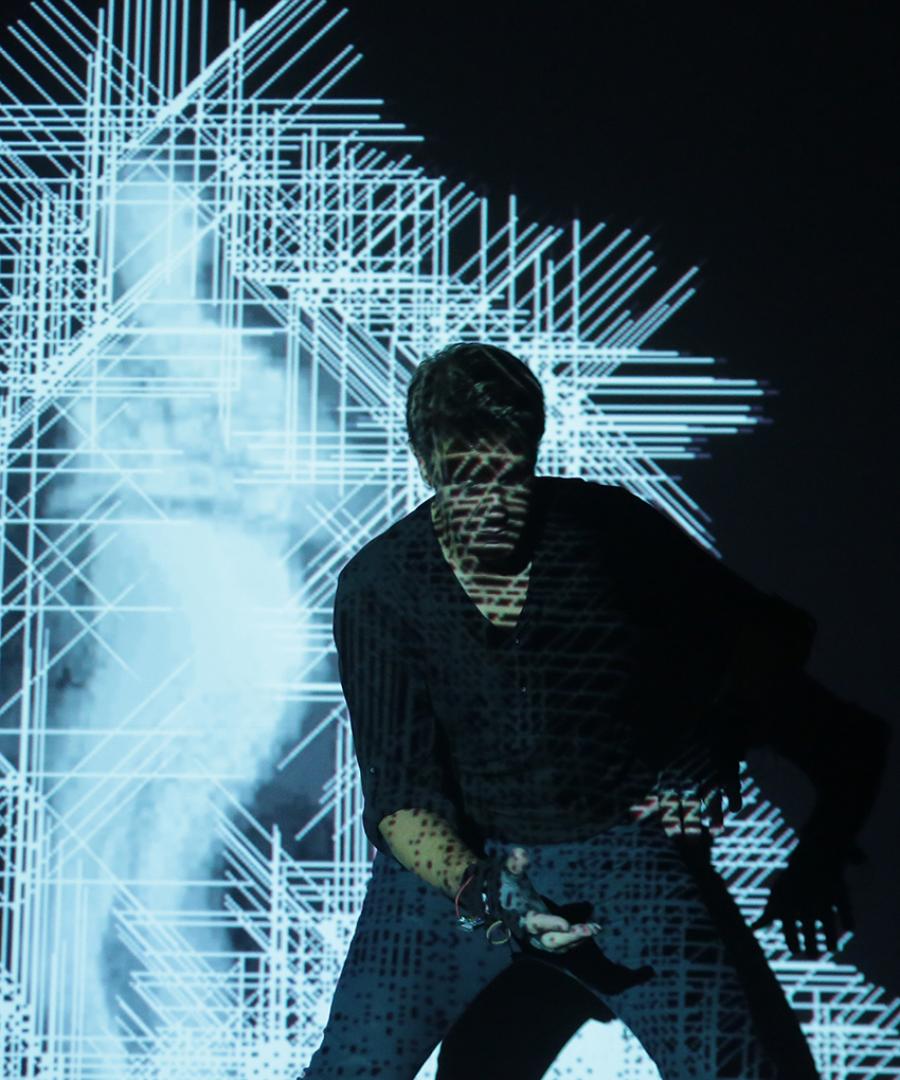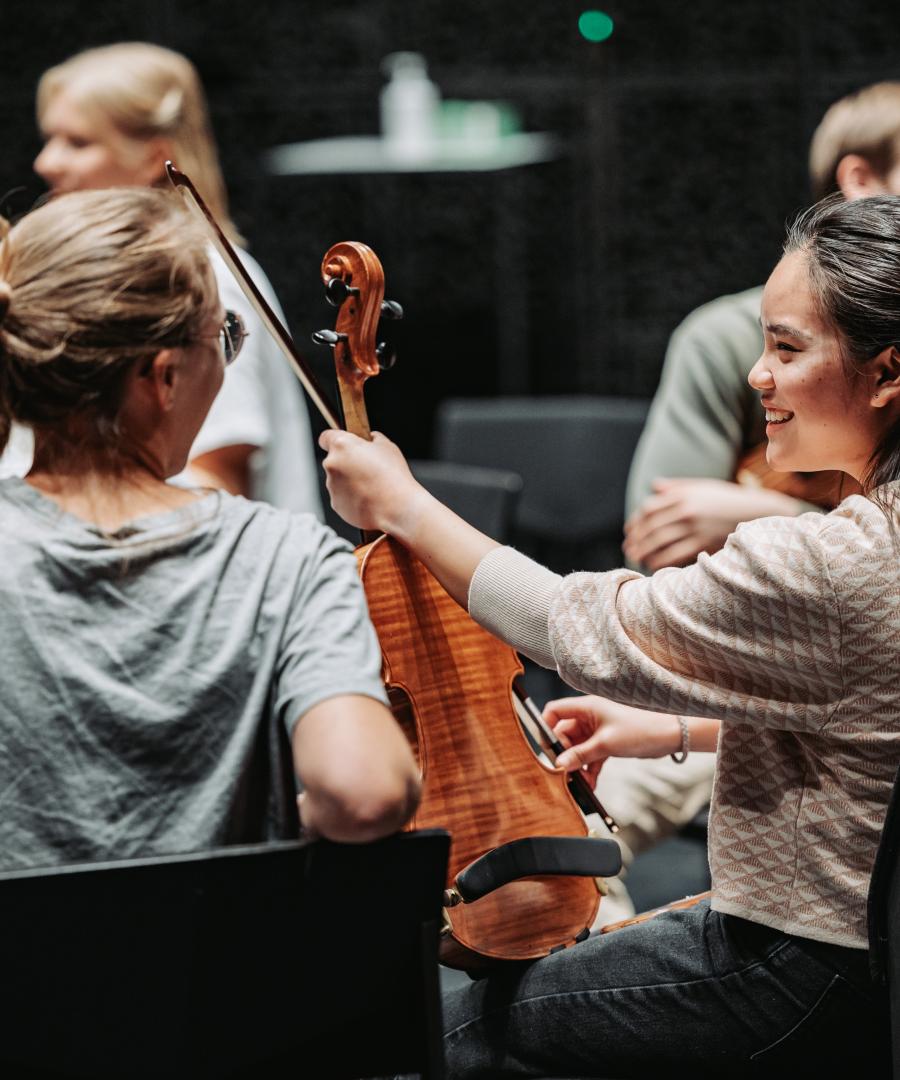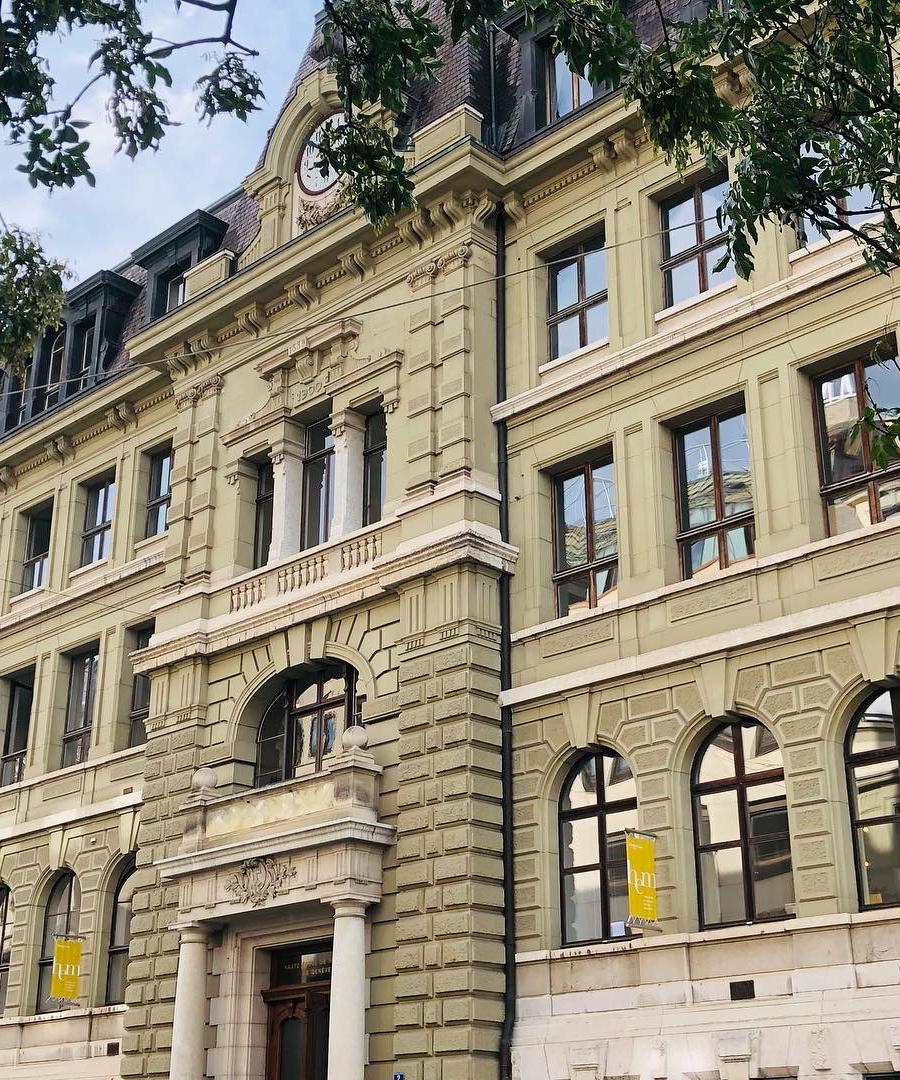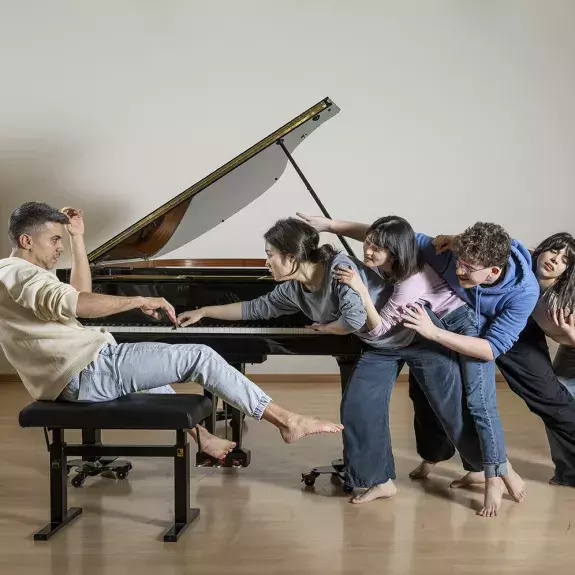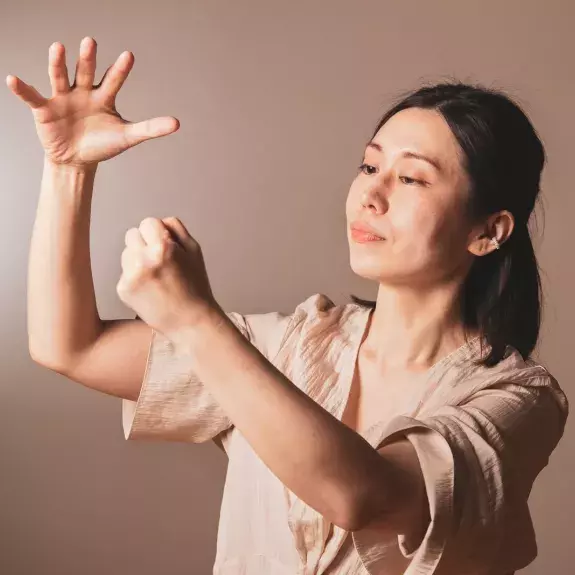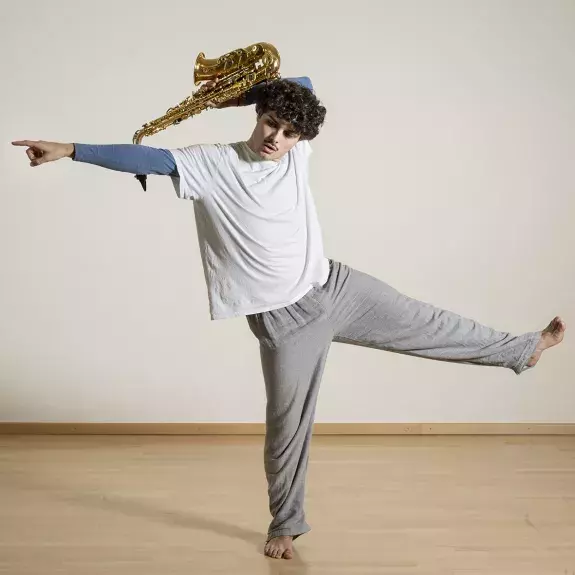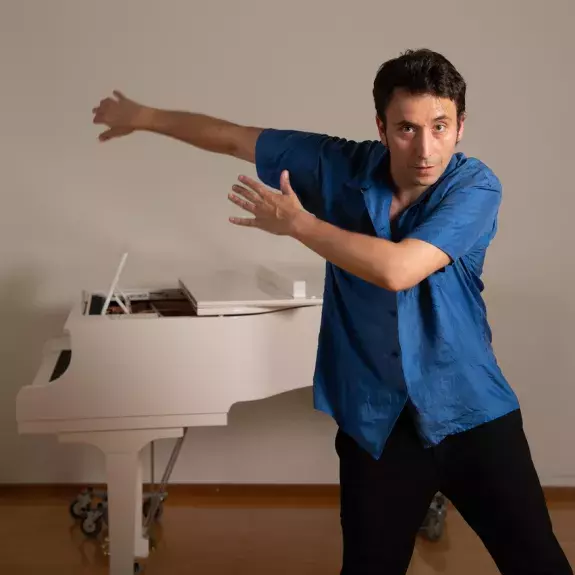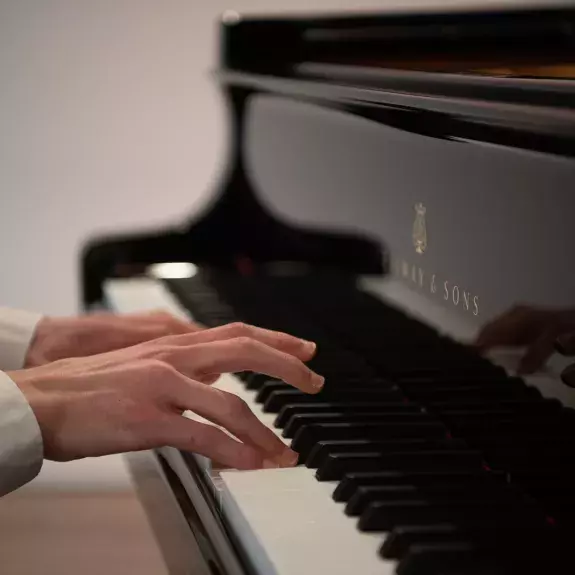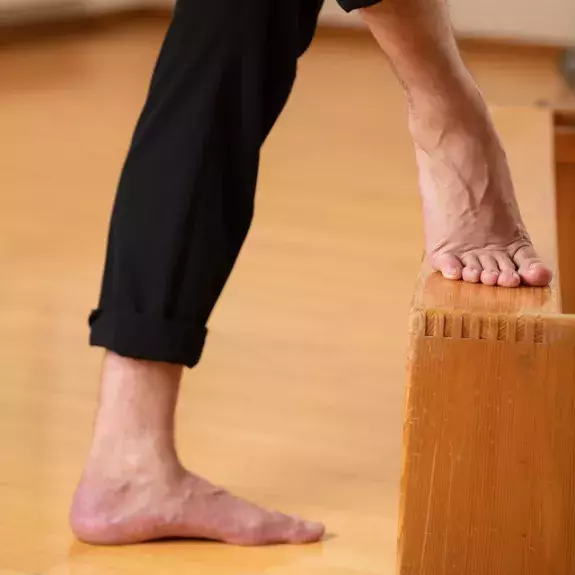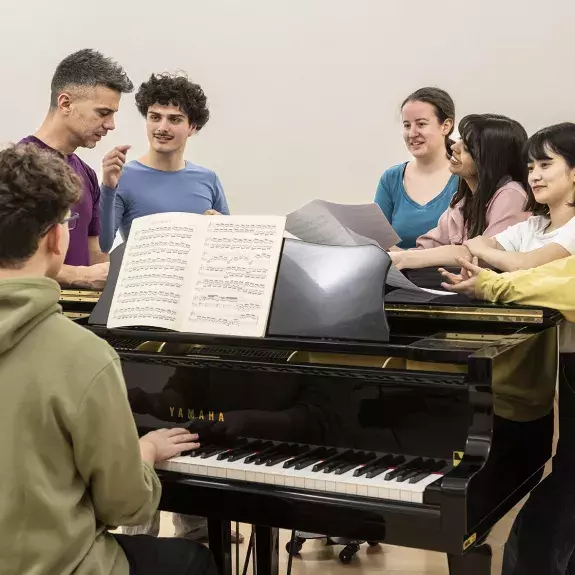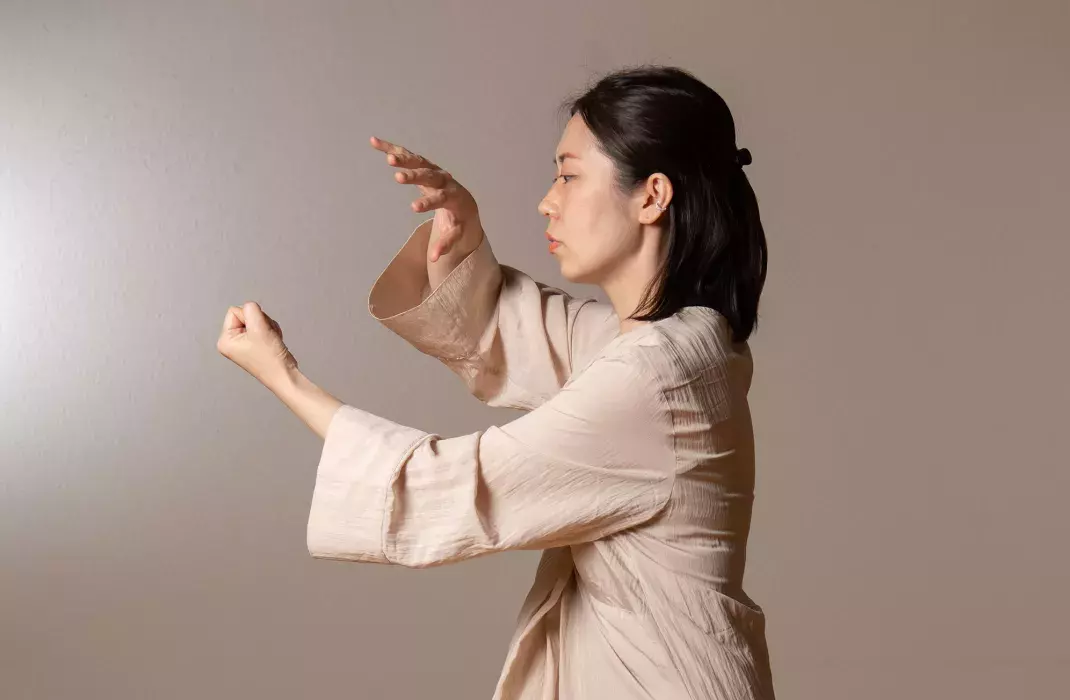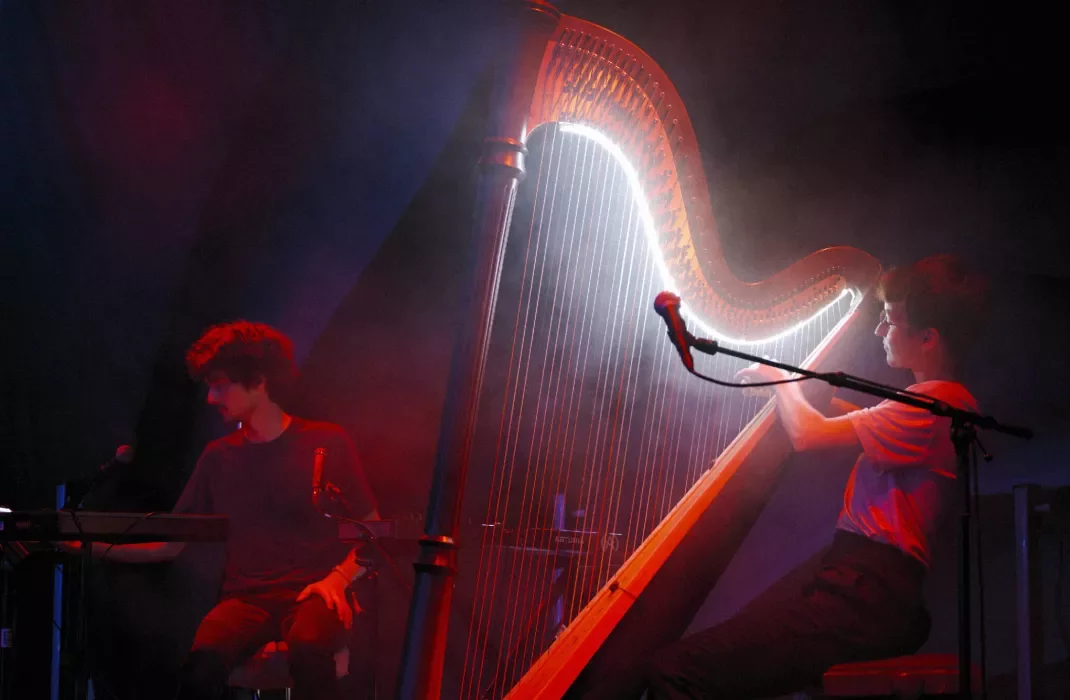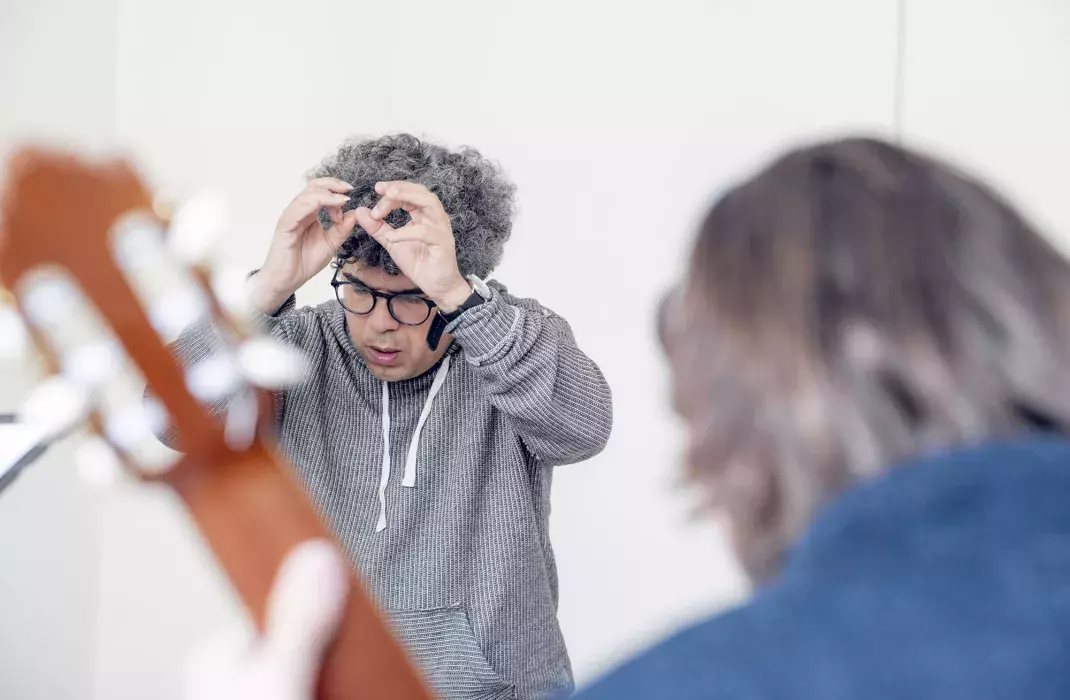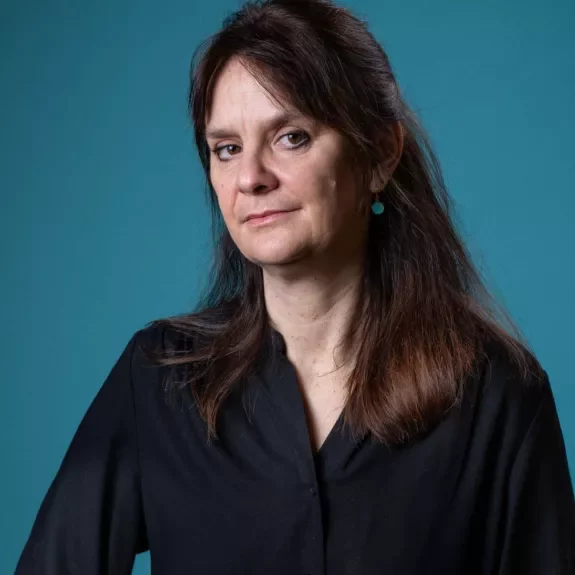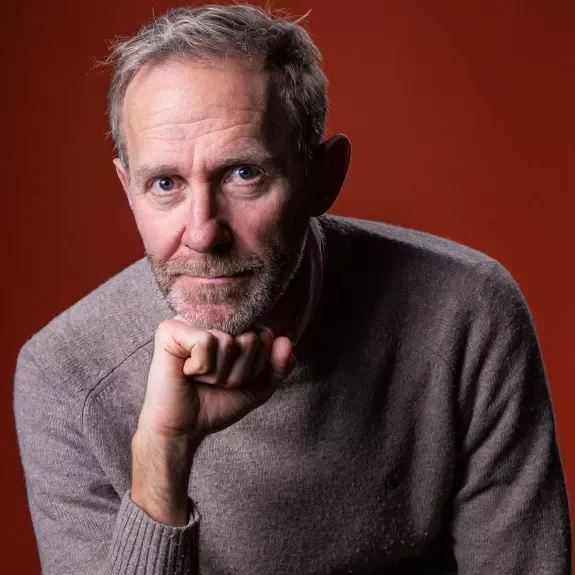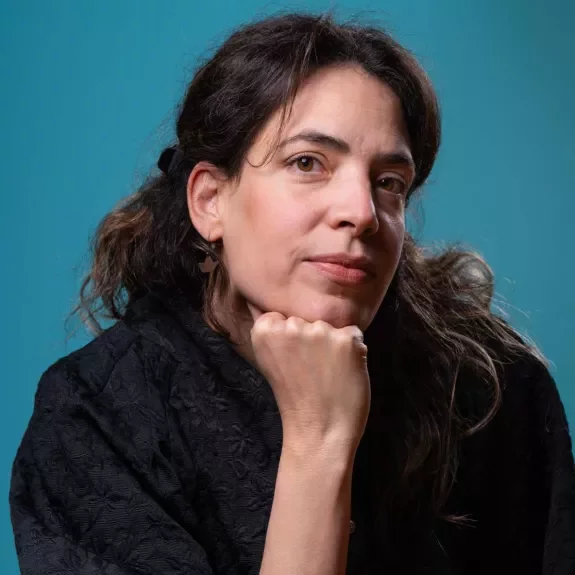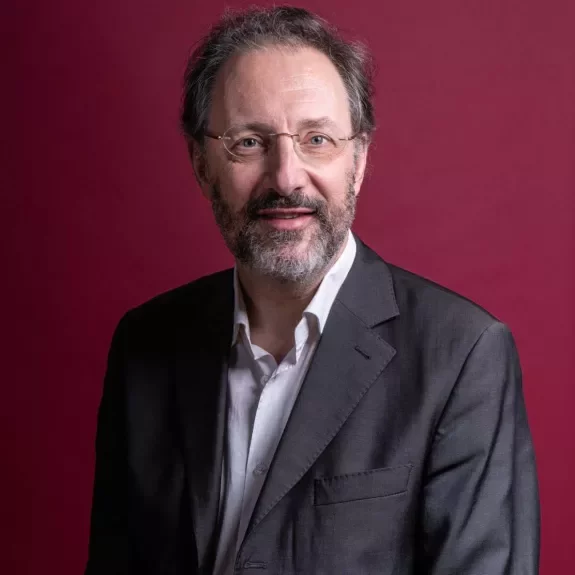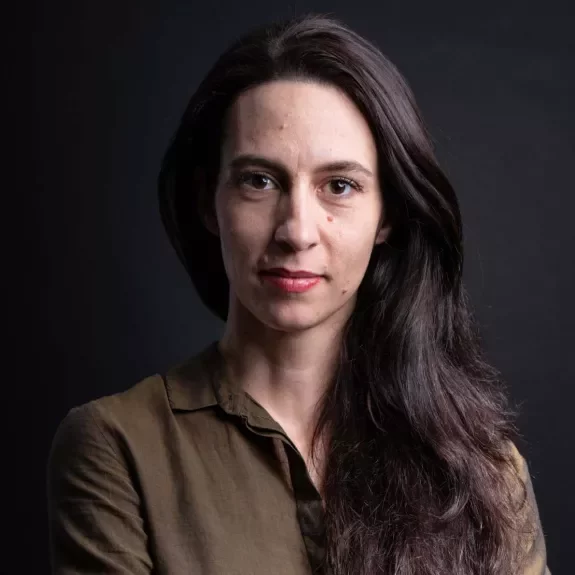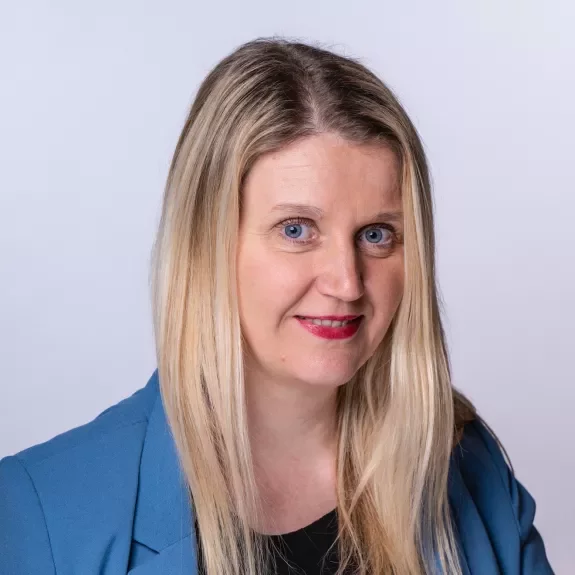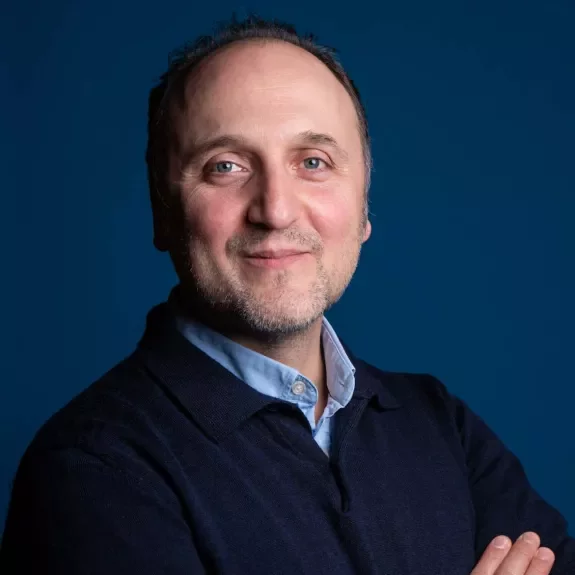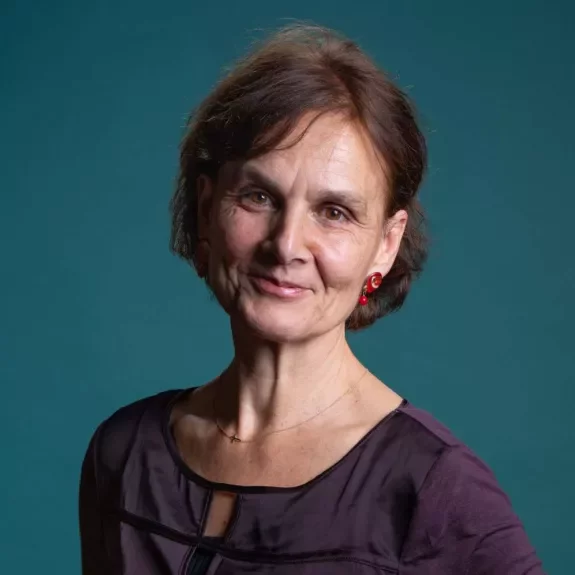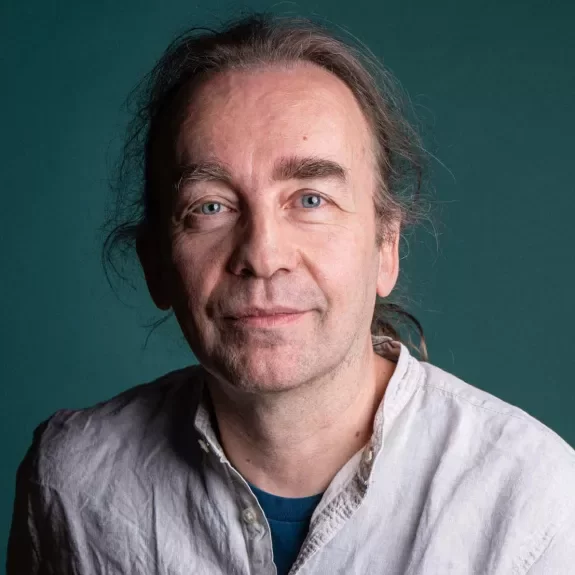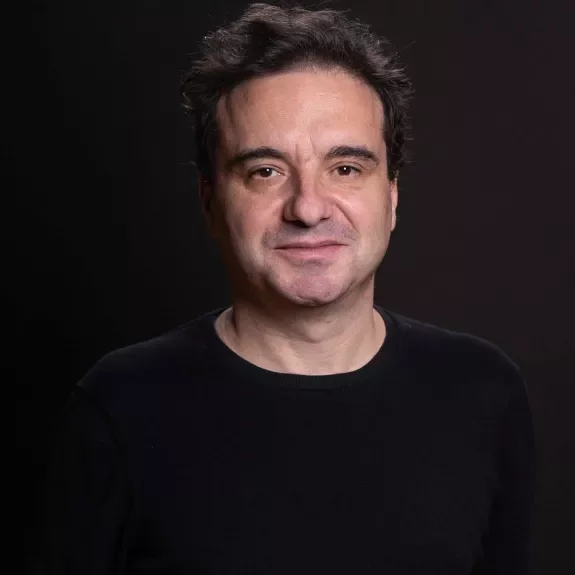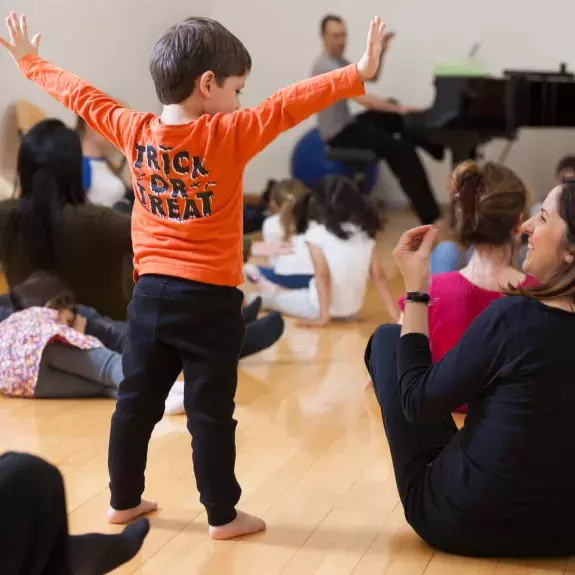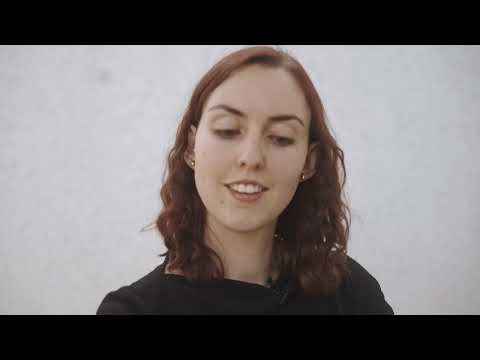- Studies
- Disciplines
- Research
- Events
- The school
The music and movement department at the Haute école de musique de Genève (HEM) offers innovative multi-disciplinary training based on the method developed by the Genevan musician and pedagogue Emile Jaques-Dalcroze.
Internationally renowned in the field of pedagogy, the Jaques-Dalcroze method provides the ability to acquire essential skills and prepare for a diverse range of careers in music thanks to the complete offer of classes: lessons in rhythm, improvisation, technique and creativity of movement, piano, applied pedagogy, theory, creativity workshops, etc.
The department's strengths
An international reach
Taught in the majority of European countries, and in America, Asia and Australia, the Jacques-Dalcroze method enjoys an international reach that has been at the source of countless projects and collaborations, but also of human interactions that form the building blocks of a future professional network.
The HEM’s Music and movement course opens the door to international careers in Europe, the United States and Asia. All over the world, Jaques-Dalcroze Eurhythmics contributes to developing skills and creating synergies between the arts and the generations.
International congresses, workshops and conferences, numerous events and meetings are organised in the world around this active form of pedagogy, which generates a real buzz around itself.
A special environment
The HEM’s music and movement department delivers its teaching in close association with the Institut Jaques-Dalcroze de Genève, with whom it shares the same premises in the vibrant district of Les Eaux-vives, in the heart of the city. The working environment incorporates spacious studios, places suited to discussions and interaction, and free access to the workrooms.
Thanks to this partnership, the music and movement department benefits from a high-quality environment that facilitates the inclusion of pedagogical tools in creativity: from the first year of the Bachelor’s degree, the students are encouraged to immerse themselves in pedagogy through practical internships that prepare them for teaching young people, and enabling them to establish their first ties with people actively involved in teaching.
A culture of cross-fertilization
The variety of the HEM’s areas of activity (from historical music to contemporary works and the development of new technologies, etc.) means that there are numerous opportunities for the department’s students. The multidisciplinary nature of the department makes it a crossroads where numerous art forms meet and interact.
Artistic collaborations in the city
Thanks to the numerous projects that the HEM proposes throughout their courses, our students have the chance to collaborate with professors and artists from all manner of fields, and to get into the fields of modern dance, theatre, art therapy and education sciences.
The department therefore operates to the beat of its city and its time, by creating ties with numerous cultural partners in Geneva. Thus, the collaboration with the association pour la danse contemporaine (ADC) has resulted in joint artistic projects, outings to shows and performances, and permanent access to the association’s document centre.
Our students also benefit from the presence of tutors on artistic projects stemming from various multidisciplinary sites such as the Galpon Theatre, but also from the expertise of producers invited to themed seminars.
There are ‘Freaky Friday’ improvisation nights, in collaboration with the Genevan improvisation league, des Masterclasses given by artists of the contemporary stage and off-campus artistic projects at various museums in the region (Musée d’ethnographie de Genève, Musées d’Art et d’Histoire, Musée de l’Ariana, etc.) add to this rich tapestry of events.
Research
The study programmes based on the philosophy of the educator Emile Jaques-Dalcroze open up fields of research that are bursting with opportunity for our students, whether it be the influence of rhythm on the development of musicality, perceptions and new technologies, or support for young children with learning difficulties or indeed people with Parkinson’s disease.
Professional openings
Thanks to its multiple uses, the training provided by the music and movement department at the HEM enables its students to quickly find openings in the jobs market. Our students are offered internships lasting a term when they start doing their Master’s degree, so that they can familiarise themselves with teaching a range of different audiences. We should emphasize that the Bachelor of Arts in Music and Movement is a professional qualification, conferring the right to teach eurhythmics at a state school (primary and infant) or at a nursery.
As for the Jaques-Dalcroze Eurhythmics strand of the Master of Arts in Musical Pedagogy, it enables students to teach at conservatoires and music schools and diverse social structures, for varied audiences ranging from very young children to the elderly.
Our students’ acquisition of a very rich artistic baggage also enables them to conceive of and carry out their own multidisciplinary projects and productions. Many of them invest in the performing arts sector, where their skills as experts on the links between music and movement, and musical improvisation, are highly sought-after.
Potential continuation of studies
A global centre of rhythm, the Institut Jaques-Dalcroze de Genève is the only establishment in the Jaques-Dalcroze galaxy authorised to bestow the higher diploma that is indispensable in order to be able to train future professional teachers in the Jaques-Dalcroze method in the fundamental subjects of rhythm, music theory and improvisation. This course, lasting approximately two years, constitutes the highest qualification in the Jaques-Dalcroze method.
To access this training, you must have a Master’s degree in Musical Pedagogy, in the area of “Jaques-Dalcroze Eurhythmics”, or a qualification deemed to be equivalent.
The department in videos
Studies
- Bachelor of Arts1
- Master of Arts2
Teachers of major disciplines
Teachers of minor disciplines
- Nadège
Allaki
Pédagogie et méthodologie - Sassoun
Arapian
Histoire de la musique , Préparation physique et mentale : Technique F. M. Alexander, Préparation physique et mentale, Histoire et pratique de la musique contemporaine - Emilio
Artessero Quesada
Préparation physique et mentale : Sensation, perception, action, Technique et créativité du mouvement, Préparation physique et mentale, Technique et créativité corporelles - Davide
Autieri
Pose de voix - Fanny
Balmer
Psychologie - Anne-Sophie
Casagrande
Préparation physique et mentale : Synergies musique mouvement , Chorégraphie - plastique animée, Préparation physique et mentale - Pablo Ernesto
Cernik
Harmonie au clavier et écriture, Préparation physique et mentale : Approche corporelle de la musique par la rythmique Jaques-Dalcroze, Théorie Jaques-Dalcroze, Improvisation instrumentale, Rythmique Jaques Dalcroze , Solfège Jaques-Dalcroze , Préparation physique et mentale - Amelia
Combarros
Pédagogie et méthodologie - Aurora
Creux-Mane
Pédagogie et méthodologie - Emily
Curt
Éléments de direction de choeur à l'école - Marie-Pierre
Duceau-Clertant
Éléments de direction de choeur à l'école - Marion
Fontana
Pédagogie et méthodologie de la musique à l'école - Tamaé
Gennai Deveaud
Rythmique Jaques Dalcroze , Solfège Jaques-Dalcroze , Remplacements pédagogiques, Pédagogie et méthodologie, Improvisation instrumentale - Nicolas
Hafner
Accompagnement de chansons, Improvisation jazz et musiques actuelles, Improvisation moderne, Pratique d'ensemble de musiques actuelles - Florence
Jaccottet
Atelier d'expérimentation créative, Rythmique Jaques Dalcroze , Technique et composition du mouvement, Travail de Bachelor musique et mouvement (TBA), Stage - MA Jaques-Dalcroze, Travail de Master en pédagogie Jaques-Dalcroze (TMAP JD), Séminaires spécifiques, Stage d'observation de cours IJD - BA musique et mouvement - Liza
Krivine
Préparation physique et mentale: Accorder son corps, Préparation physique et mentale - Vanessa
Lenglart
Préparation physique et mentale : Méthode Feldenkrais, Préparation physique et mentale - Valérie
Morand Sanchez Reinoso
Préparation physique et mentale : Corps et mouvement , Technique et créativité corporelles, Préparation physique et mentale - Christine
Morard
Pédagogie et méthodologie - Hélène
Nicolet
Théorie Jaques-Dalcroze, Rythmique Jaques Dalcroze - Stéphane
Orlando
Improvisation instrumentale, Atelier d'improvisation, Harmonie au clavier et écriture - Loyse
Pouchet
Pédagogie et méthodologie - Nancy
Rieben
Préparation physique et mentale : Yoga , Préparation physique et mentale, Travail de Bachelor musique et musicologie (TBA) - Pascale
Rochat-Martinet
Préparation physique et mentale : Approche corporelle de la musique par la rythmique Jaques-Dalcroze, Atelier de pédagogie appliquée, Improvisation instrumentale, Improvisation pour le mouvement et l'enseignement, Rythmique Jaques Dalcroze , Solfège Jaques-Dalcroze , Préparation physique et mentale - Maria-Raquel
Russo-Laville
Préparation physique et mentale : L’eutonie - détente et éducation posturale, Préparation physique et mentale - Marie-Claude
Schenkel
Préparation physique et mentale : Éducation thérapeutique des musicien-es-s , Préparation physique et mentale - Sylwia
Sobolewska
Pédagogie et méthodologie - Laurent
Sourisse
Harmonie au clavier et écriture, Accompagnement de chansons, Improvisation instrumentale - Sébastien
Weil
Préparation physique et mentale : Yoga , Préparation physique et mentale - Daniel
Zea Gomez
Eclairage et régie, Édition et séquenceurs, Atelier d'expérimentation créative - Laurie
Zufferey
Pédagogie et méthodologie
Accompanists
Research projects

